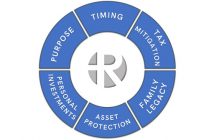If you and your business have been fortunate enough to weather the recent economic downturn, this may be a great time to re-evaluate how to protect yourself from future recessions. What if your business extends terms to clients or what if you find yourself with clients who owe your business a debt? You have become a creditor and that might mean work to recover what is owed to you.
If your business is one that includes terms as part of the payment structure, the time to prepare is before you sign the next client. After you have spent your energy and marketing dollars acquiring new business, don’t fail to take measures that can help ensure a recovery, should repayment be unsuccessful. Have a solid agreement in place, one that has been reviewed by your attorney. A key section to include would be one that provides for the recovery of all of your debt as well as the associated costs and expenses of recovery, even if you never file a lawsuit. Also, in your client paperwork, be sure to ask your client for identifying information such as full name, address, social security number1, employer, banking information and references. This information becomes critical to your asset recovery group, collection agency or law firm.
In addition to taking these protective steps, be diligent about following up with your past-due accounts. Most clients who become debtors did not set out to miss payments. Most are good clients who then suffer cash-flow issues. Be flexible with your clients, and to the extent your own business needs allow it, try to get your clients into a sustainable payment regimen.
Sometimes, however, even the best-laid plans do not work out and you have a debtor instead of a client. Now you should consider whether a collection agency or referring the matter to your attorney is the next best step. Using a collection agency might seem more efficient, but that could open your business up to claims for unfair debt collection violations. This puts your business name at risk and could expose you to fines for failure to comply properly with the legal requirements of debt collection. Referring the matter to your attorney insulates your business from having to deal with this aspect of liability. Some business owners see a lawyer’s presence as an unnecessary expense, but with the proper preparation in your client agreements, these costs can be passed on to the debtor.
If necessary, a lawsuit can result in certain recovery options that cannot take place otherwise. Once a lawsuit is reduced to a judgment, you and your lawyer can then issue garnishments to recover from the debtor’s accounts or from the debtor’s wages. Here again is why proper work up front is necessary. With the information available in your client agreements, you have a better chance of recovery because you know where the debtor works and banks.
Another benefit to pursuing debts through the courts is that a judgment attaches to any real property the debtor owns. Also, should your debtor purchase any real property in the county where the judgment is registered, your judgment immediately attaches to the new property.
Many debts do not have to lead to lawsuits, as they can be negotiated to a settlement prior to a suit being filed. In any event, having the right information in the beginning can help reduce your out-of-pocket costs as you pursue your rights to recovery.
Peter Werner is an Oregon Attorney and of Counsel at Schmid Malone LLC in Bend, Oregon. For more information: peter@schmidmalone.com or 541-388-1107.
1If you collect private data such as an SSN or a driver’s license, make sure your company has a security and privacy policy and that you adhere to it.




